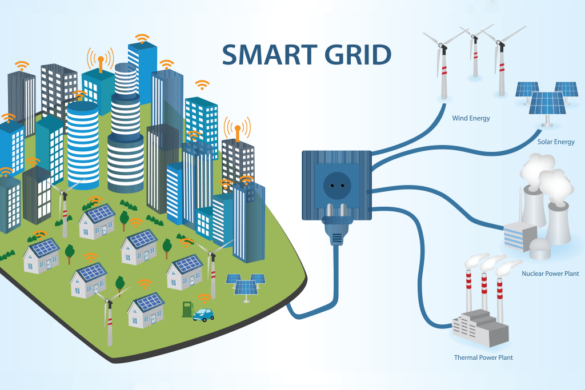 Companies have mastered the art of selling bundles. They package services together and present them as convenient, cost-effective solutions that meet all your needs. Most of these pre-made packages benefit the company more than the customer. When did a bundle last perfectly match what you wanted without including unnecessary extras?
Companies have mastered the art of selling bundles. They package services together and present them as convenient, cost-effective solutions that meet all your needs. Most of these pre-made packages benefit the company more than the customer. When did a bundle last perfectly match what you wanted without including unnecessary extras?
More industries now offer unbundled options where you can select exactly what you need. This gives you control over your spending and ensures you’re not paying for unused services. It’s a different approach to purchasing that often results in significant savings and better service quality.
The Bundle Business Model
Bundles exist primarily for company profit, not customer benefit. When purchasing a bundle, you typically pay close to full price for expensive items while receiving cheaper add-ons the company struggles to sell separately.
Cable TV packages demonstrate this perfectly. You might want five specific channels but must purchase a package containing 200 channels you’ll never watch. The company profits from those unused channels while you receive no value from them. They market this as convenience while maximizing their revenue.
This pattern repeats across industries – phone contracts, insurance policies, vacation packages. Companies design bundles to optimize their profits, then invest heavily in marketing to convince consumers these packages offer genuine value.
Mobile Contracts Show the Problem
Phone contracts exemplify how bundles can work against consumer interests. Traditional mobile deals combine device financing with service plans, even when this creates financial disadvantages for customers.
Bundled phone contracts function as loans for device purchases, repaid through monthly bills. These arrangements often feature poor interest rates and two-year commitments that restrict flexibility. Life changes, better deals emerge, but customers remain locked into unfavorable terms.
Exploring best sim only deals provides a clearer alternative. Network coverage and service quality remain identical, but customers gain device choice flexibility, easier plan changes, and typically lower monthly costs.
Network infrastructure operates independently of device selection. Phone companies generate higher profits when combining expensive devices with service plans.
The Cost of Perceived Convenience
Companies market bundles as convenient solutions, which contains some truth. Single billing is simpler than managing multiple accounts, and customers avoid researching individual components. This convenience carries hidden costs most consumers don’t recognize.
Allowing companies to make your choices means those decisions favor their interests over yours. “Convenient” bundles include unwanted services, charge premium prices for basic features, and create long-term contracts with restrictive terms.
True convenience would involve getting desired services at fair prices with flexibility for future changes. Most bundles fail to deliver this experience.
Breaking Free from Bundle Thinking
Escaping bundle dependence requires a shift in purchasing approach. Instead of asking “which package should I choose,” the question becomes “what do I actually need, and where can I obtain each component most effectively?”
This demands additional upfront research but typically delivers better value. Services align with actual needs rather than forcing payment for unwanted features. Flexibility increases for modifying individual components without disrupting entire arrangements.
Mobile users might purchase phones outright and select SIM-only plans. Streaming consumers could rotate between services seasonally rather than maintaining year-round subscriptions. Insurance buyers might source different coverage types from specialized providers.
Why Companies Favor Bundles
Understanding company motivations for bundle promotion reveals why unbundled alternatives often benefit consumers more. Bundles increase average customer spending and complicate price comparison processes.
Package pricing obscures individual component costs. Customers struggle to compare mobile contract phone prices with standalone devices or service portions with other networks. This complexity discourages thorough comparison shopping.
Bundles create switching barriers. Dissatisfaction with one package element requires changing entire arrangements, leading customers to tolerate suboptimal services rather than navigate comprehensive changes.
Industry Resistance
Some sectors actively resist unbundling because it threatens established business models. Cable companies particularly oppose individual channel selection, knowing most customers want limited specific content and would spend significantly less with choice.
Airlines moved toward extreme unbundling, charging separately for baggage, seat selection, food, and beverages. While sometimes frustrating, this approach eliminates subsidizing unused services for minimal travelers.
Success requires finding companies offering unbundled options as genuine customer benefits rather than fee multiplication strategies.
Strategic Unbundled Purchasing
Buying services separately requires more intentional decision-making than accepting convenient packages. This means evaluating actual usage patterns rather than theoretical needs.
Document what you genuinely use regularly. Does unlimited mobile data serve your needs, or would smaller plans suffice? Which streaming services see consistent use monthly? What insurance coverage addresses real risks versus theoretical concerns?
Research optimal providers for each component individually. This process takes longer than bundle selection but generally produces superior service at lower total cost.
Current Market Trends
Technology advancement makes unbundled approaches increasingly viable. Digital services particularly benefit from separation, allowing precise matching of features to user requirements.
Subscription economy growth provides more granular service options across industries. Consumers gain unprecedented control over service combinations and spending allocation.
Smart home technology, streaming platforms, and mobile services now offer modular approaches where customers build personalized service portfolios rather than accepting predetermined packages.
Implementation Strategy
Successfully transitioning to unbundled services starts with honest assessment of current usage patterns. Many people discover they’re paying for services they rarely use or features they don’t need.
Audit existing subscriptions and contracts. Identify which components provide value and which represent waste. This foundation enables informed decisions about future purchases.
Gradually transition services as contracts expire rather than attempting simultaneous changes. This approach reduces complexity while allowing experimentation with different providers and service levels.
Long-term Benefits
Unbundled purchasing creates sustainable financial advantages beyond immediate savings. Flexibility enables adaptation to changing life circumstances without penalty fees or contract complications.
Market competition increases when customers can easily compare individual service components. This pressure drives innovation and competitive pricing across industries.
Consumer awareness of actual service costs improves decision-making quality over time. Understanding true pricing helps identify genuine value versus marketing manipulation.
The shift toward unbundled services represents broader consumer empowerment in marketplace decisions. While requiring more active participation in purchasing choices, this approach consistently delivers better alignment between services and actual needs.









